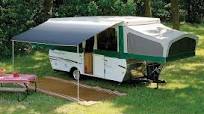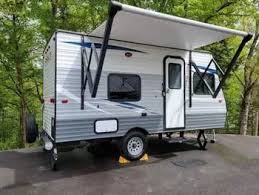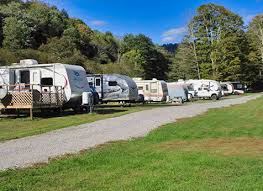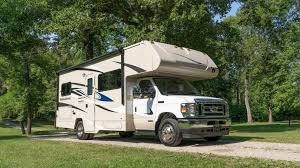The Essential Guide to Tent Trailer Parts
Tent trailers are a popular choice for outdoor enthusiasts looking to enjoy the comforts of home while camping in the great outdoors. To keep your tent trailer in top condition and ensure a smooth camping experience, it’s essential to understand the various parts that make up these versatile vehicles.
Canvas Material
The canvas material of a tent trailer is one of its most crucial components. It provides protection from the elements and serves as the primary shelter for campers. Regularly inspect the canvas for tears, mold, or mildew, and make any necessary repairs or replacements to ensure it remains waterproof and durable.
Frame and Chassis
The frame and chassis form the structural foundation of a tent trailer. Check for signs of rust, corrosion, or damage, especially at connection points and joints. Proper maintenance and occasional lubrication can help extend the lifespan of these critical components.
Suspension System
The suspension system plays a vital role in ensuring a smooth and stable ride while towing your tent trailer. Inspect the suspension components regularly for wear and tear, including springs, shocks, and axles. Properly maintaining your suspension system can enhance towing stability and overall safety.
Electrical System
From interior lighting to appliances and entertainment devices, the electrical system in a tent trailer powers various amenities that enhance your camping experience. Check all electrical connections, fuses, and wiring for any issues or damage to prevent malfunctions during your trip.
Plumbing System
If your tent trailer is equipped with a water supply system for sinks, showers, or toilets, proper maintenance of the plumbing system is crucial. Regularly check for leaks, blockages, or damaged pipes to ensure efficient water flow and prevent potential water damage inside your trailer.
Accessories and Add-Ons
In addition to essential components, tent trailers often come with various accessories and add-ons that enhance comfort and convenience while camping. These may include awnings, bike racks, storage compartments, or leveling jacks. Regularly inspect these accessories for wear or damage to ensure they function correctly when needed.
By understanding the key parts of your tent trailer and maintaining them regularly, you can enjoy many memorable camping adventures with peace of mind knowing that your vehicle is in optimal condition.
Essential Maintenance and Repair Tips for Tent Trailer Parts: FAQs Answered
- 1. How do I repair tears or holes in the canvas material of my tent trailer?
- 2. What are the common signs of wear and tear on the frame and chassis of a tent trailer?
- 3. How often should I inspect and maintain the suspension system of my tent trailer?
- 4. What should I do if I encounter electrical issues in my tent trailer, such as malfunctioning lights or appliances?
- 5. Are there any specific maintenance tasks required for the plumbing system of a tent trailer?
- 6. Can I add aftermarket accessories, such as awnings or bike racks, to my tent trailer, and how do I ensure they are compatible?
1. How do I repair tears or holes in the canvas material of my tent trailer?
Repairing tears or holes in the canvas material of your tent trailer is a common concern for many campers. To address this issue, start by cleaning the damaged area and allowing it to dry completely. Next, apply a patch specifically designed for canvas repairs, ensuring that it fully covers the tear or hole. Use a strong adhesive to secure the patch in place and press firmly to ensure a tight bond. For larger tears, sewing the edges of the repair patch can provide added reinforcement. Regularly inspect the repaired area to ensure its durability and waterproofing, allowing you to continue enjoying your outdoor adventures with confidence in your tent trailer’s integrity.
2. What are the common signs of wear and tear on the frame and chassis of a tent trailer?
When it comes to the frame and chassis of a tent trailer, there are several common signs of wear and tear to watch out for. These may include visible rust or corrosion on metal components, especially at connection points and joints. Additionally, dents, cracks, or bent sections on the frame can indicate structural damage that needs immediate attention. Uneven wear on tires or suspension components, such as sagging springs or leaking shocks, can also be signs of potential issues with the frame and chassis of a tent trailer. Regular inspection and maintenance are essential to address these warning signs promptly and ensure the safety and longevity of your camping vehicle.
3. How often should I inspect and maintain the suspension system of my tent trailer?
Regular inspection and maintenance of the suspension system in your tent trailer is crucial to ensure a safe and smooth towing experience. It is recommended to inspect the suspension system at least once a year or before embarking on a long journey. Check for signs of wear and tear, such as worn-out springs, damaged shocks, or loose components. Proper lubrication of moving parts can help prevent premature wear and ensure optimal performance. By staying proactive with your suspension system maintenance, you can enhance towing stability, extend the lifespan of your tent trailer, and enjoy worry-free adventures on the road.
4. What should I do if I encounter electrical issues in my tent trailer, such as malfunctioning lights or appliances?
When encountering electrical issues in your tent trailer, such as malfunctioning lights or appliances, it is essential to troubleshoot the problem systematically. Start by checking the power source, ensuring that the trailer is properly connected to a reliable power supply or that the battery is charged. Next, inspect the electrical connections, fuses, and wiring for any loose connections or damage. If you are unable to identify and resolve the issue on your own, it may be necessary to seek assistance from a qualified technician to diagnose and repair the electrical problem effectively. Addressing electrical issues promptly ensures that you can continue to enjoy a safe and comfortable camping experience in your tent trailer.
5. Are there any specific maintenance tasks required for the plumbing system of a tent trailer?
Maintaining the plumbing system of a tent trailer is essential to ensure a hassle-free camping experience. Specific maintenance tasks for the plumbing system include regularly checking for leaks, blockages, or damaged pipes. It is important to inspect connections, fittings, and seals to prevent water leaks that could lead to water damage inside the trailer. Additionally, flushing the water system with a safe cleaning solution and ensuring proper winterization before storage can help prevent freezing and damage to the plumbing components. By staying proactive with these maintenance tasks, campers can enjoy a reliable and efficient plumbing system during their outdoor adventures.
6. Can I add aftermarket accessories, such as awnings or bike racks, to my tent trailer, and how do I ensure they are compatible?
When considering adding aftermarket accessories like awnings or bike racks to your tent trailer, it’s essential to ensure compatibility with your vehicle. Before making any modifications, carefully review the manufacturer’s guidelines and specifications to determine if the accessories are suitable for your tent trailer model. Some tent trailers may have specific attachment points or weight limitations that need to be considered when adding aftermarket accessories. Consulting with a professional or contacting the manufacturer for guidance can help ensure that the accessories are safely and securely installed, enhancing your camping experience without compromising the integrity of your tent trailer.




